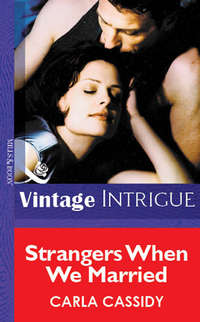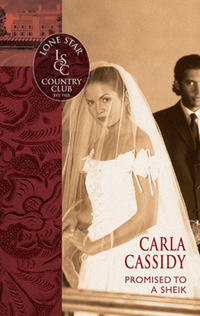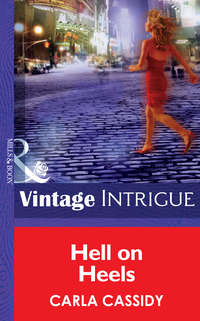
Полная версия
Romancing The Crown: Drew and Samira: Her Lord Protector
‘‘Yes. The country needs to see Lucas officially installed as heir.’’
‘‘Do you think the bombing is connected to the uncertainty about the succession? Tamir—’’
‘‘Good Lord, Drew, the last thing we need is to sling a fresh batch of accusations at Tamir! We barely made it through the last few months without a war.’’
‘‘Yes,’’ Drew said shortly. ‘‘I know.’’
‘‘Sorry.’’ He rubbed a hand over his head. ‘‘It’s been…difficult.’’
‘‘I was about to say that Tamir, however unwittingly, did play host to a number of those Brothers of Darkness fellows. Nasty bunch. They aren’t what they once were, thank God, with their leaders either dead or in prison, but there must still be some isolated cells operating. I heard they’re taking credit for today’s fireworks.’’
‘‘And just where did you hear that? We don’t know who called in the—yes?’’ Lorenzo’s attention swerved to the uniformed officer who approached.
‘‘Pardon me, Your Grace.’’ The young policeman looked nervous and excited. ‘‘Captain Mylonas would like to see you. He’s detained a suspect.’’
Drew’s eyebrows rose. Either Mylonas had gotten very lucky, or he was hassling some poor Tamiri visitor who’d been in the wrong place at the wrong time. After Drew’s encounter with the captain, he was betting on the second possibility.
‘‘Where?’’ Lorenzo said tersely.
‘‘In the security office off the atrium.’’
Lorenzo started moving. ‘‘Your limo’s out front, Drew.’’
‘‘If you don’t mind, I’ll go with you. If there’s anything to this, His Highness will want to know. I can brief him when I reach the palace.’’
Lorenzo acknowledged the sense of that with a nod.
Montebello’s airport was no Heathrow, but it was a fair stretch of the legs to reach the security offices, located slightly west of the center but not in the bombed section. Drew was tired. His head had started to pound and his lungs were issuing warnings of another coughing fit by the time they reached the office where Captain Mylonas had sequestered his suspect.
Who was not at all what Drew had been expecting. He stopped in the doorway.
‘‘Your Grace.’’ The captain practically clicked his heels together when Lorenzo entered. Mylonas was a small man with a small, round paunch. His mustache was so black and precise it looked inked on—a forlorn attempt to add distinction to a bland face. ‘‘I am pleased you could come so promptly.’’
‘‘You have a suspect, I understand.’’
‘‘He has heatstroke,’’ the suspect muttered. ‘‘Or maybe his mother dropped him on the head as a baby. That would explain it.’’
Good Lord, Drew thought. Her voice was as perfect as the rest of her.
Mylonas’s suspect had skin the dusky olive of the Mediterranean. Her face was oval, the features imbued with that fluid sensuality some Italian women possess. Black hair rippled down her back like wind-rumpled water. She was dressed plainly enough in a red T-shirt and khaki shorts, but the T-shirt was tucked in at an absurdly small waist, the shorts revealed legs that made him clench his teeth, and that soft red cotton clung with intimate favor to what might be the finest pair of breasts he’d ever seen.
Or mostly seen. The T-shirt wasn’t as tight as he might have wished.
‘‘Your name?’’ Lorenzo asked crisply.
‘‘Rosalinda Cira Giaberti. Call me Rose. And you are?’’
The sweet insolence of her tone had Drew smiling. This was a terrorist?
‘‘Lorenzo Sebastiani.’’
A blink cleared some of the boredom from those fine, dark eyes. ‘‘Pardon me, Your Grace, for failing to recognize you. You seem to have left your coronet at home.’’ When she glanced at Drew her brows lifted in haughty inquiry. ‘‘You aren’t a Sebastiani.’’
‘‘No. Call me Drew, Signorina Giaberti.’’ His smile suggested that if she didn’t call, he would. Soon. ‘‘It is signorina, isn’t it?’’ There was no ring on her left hand.
Her mouth twitched in amusement. ‘‘And if it isn’t?’’
‘‘Life is seldom fair, but rarely is it that absurdly malignant.’’ For some reason his bantering tone slipped, as if he’d spoken nothing more than the truth.
She tipped her head, curious, and met his eyes.
The hairs on his forearms stood on end. He looked into those dark eyes and he knew—he was going to have her. When and where didn’t matter. He would have this woman naked and damp and crying out for him.
Her eyes widened. A small, alarmed jerk of her head snapped the contact.
‘‘Signorina Giaberti called in the bomb threat,’’ Captain Mylonas announced with relish.
It took a second for Drew to throw off the odd spell and understand what the man had said. When he did, his stomach contracted in quick, hard denial. But however his body rejected the implications, his mind knew very well that lovely packages could hold ugly surprises. Yet he still wanted her.
How far had he sunk?
The woman was unimpressed by the implicit accusation. Her glance at the captain was annoyed, no more. ‘‘Madre di Dio. It was a warning, not a threat. You might consider thanking me.’’
‘‘Thanking you? For attempting to kill hundreds of innocent people?’’
‘‘I tried to kill no one. If I hadn’t called, the building wouldn’t have been evacuated and the fire—’’ She broke off suddenly. ‘‘I warned you about the bomb. I didn’t threaten you with one. The distinction may be subtle to one of your intelligence, so I will give an example. If I say that looking at your smug, shiny face might cause me to lose my supper, that is a warning. If I say I’m going to vomit all over your pretty uniform unless you go away, that is a threat.’’
Drew choked on a laugh, then doubled over as another coughing fit hit.
Lorenzo took a step towards him. He waved his cousin back, stepping out into the hall so he wouldn’t interfere with the interrogation while his body tried to eject the lining of his lungs. He ended up leaning weakly against the wall, eyes watering as he dragged deep breaths through his raw throat. His head pounded, a hard, hot throb of pain. He blinked the moisture back.
One of the police officers was staring at him. Bloody hell. In another minute he’d have the fool over here asking if he needed medical attention. He made the effort to straighten, glancing down at the scuffed white tiles of the floor…
And the world slipped behind a wall.
Sounds, color, vision—all were still there, but removed. Distant, as if everything had slid behind glass. The pain in his head went from a throb to a long slice of agony.
Not again—please, not now. Not again.
But his plea was as trapped as the rest of him. As if someone had taken a grip on two corners of the world and pulled, the square tiles of the floor stretched into parallelograms. Pain became pressure, livid, explosive, almost living, as if it could burst out of his skull and splatter his brains on the white, elongated tiles. He tried to move, to at least close his eyes. And couldn’t. He could only stand frozen while the tiles melted and the beast behind his eyes rose in a huge wave—
As suddenly as it had come, it was gone. The tiles dragged themselves back into their proper shapes, the pressure receded, tidelike, leaving him cold and clammy and weak. Last to go was the wall, the glassy barrier that muffled everything…
‘‘…all right, sir?’’
He looked up. The officer he’d seen earlier was standing in front of him, looking very young in a soot-smudged uniform. Those spaniel eyes hadn’t yet learned a cop’s detachment.
Drew dredged up a reassuring smile. ‘‘Afraid I inhaled too much smoke earlier. I’ll be fine.’’
As fine as a man could be, that is, when he was losing his mind.
Chapter 2
Montebello was a tiny island with a long history. Conquered, traded, overrun and reconquered, its 3,100 square miles—less than half the size of Wales, smaller than forty-eight of the United States—held detritus from more than two thousand years of bloody civilization. A farmer’s plow might turn up Roman coins, an Assyrian ax head, Egyptian pot shards or a handful of spent casings from a machine gun used by Mussolini’s occupying army. As Drew’s limousine climbed the stubby mountains that separated the airport from the capital city, it passed goats grazing in a tumble of hewn rocks that had once been the walls of a Byzantine monastery.
The Turks had destroyed that monastery after the fall of Constantinople in 1453. Beneath the highway’s smooth modern paving lay earth once tramped by Roman legions, who had brought law and the cult of Aphrodite to this small, fertile island. Muhammad’s followers had walked here, proclaiming the oneness of God with curved scimitars while their mathematicians brought to the world new ways to measure its bounds. The militant Knights of St. John and the secular knights of Richard I arrived with their straighter swords a century later, housing God in different architecture. They also brought to the island those practical mysteries of commerce and government that supported the growth of a new class—a middle class.
Soon, though, they lost the island to the Doge of Venice. The local nobility didn’t fare well in that change of power, but the growing class of artisans and traders prospered under a ruler entranced with the glittering possibilities of commerce. The Venetian branch of a northern Italian family, the Sebastianis, invested heavily in the island and eventually moved there.
Not until Napoleon overran Europe did the little island taste autonomy. The French Emperor claimed it along with his Italian territory, but he had no troops to spare for so distant a possession. The local mechanisms of government persisted, but no one was truly in charge—at least, no one the locals could agree on.
A small, prosperous island without a strong defender wouldn’t be allowed to dabble in sovereignty for long. Augustus Sebastiani, by then a Duke, stepped into the temporary vacuum and by a combination of trickery and economic clout made himself the de facto head of state. He forestalled any violent courtships by Montebello’s acquisitive neighbors with a series of canny trade agreements and marriages. One Sebastiani daughter went to France, another to a Spanish prince, while the oldest son took a noble English bride.
This hedging of bets through arranged marriages proved wise when, after Waterloo, Europe divided the spoils and England acquired Montebello and held it in a loose and friendly grip. In 1880, either from altruism or a lack of interest, Great Britain bestowed the island upon its people in the person of King Augustus Sebastiani, who promptly married an English noblewoman with ties to the British throne.
The Sebastianis had ruled ever since. In some ways the family personified the results of the island’s long and bloody history—a mingling of races, religions, tongues and cultures that had produced a people both passionate and pragmatic. Over the years the ties with England had been strengthened through commercial and political agreements —and once more, thirty-seven years ago, through marriage. Montebello’s ruler, King Marcus II, had married an English noblewoman connected to the British throne—Lady Gwendolyn Sebastiani, née Peterson. Drew’s aunt.
In the quiet, cushioned luxury of the king’s limousine, Lord Andrew Harrington passed through the outskirts of the capital without seeing the lights, the old buildings leaning at age-settled angles or the new ones, briskly upright.
He was counting.
Exhaustion had hit the moment the spell passed, a great, gray, sucking swamp that experience told him would eventually drag him down. Once he gave in he would sleep for hours, sleep so deeply he might as well be unconscious, doped or dead.
Drew hadn’t come here to scare his relatives to death by arriving unconscious. Nor did he want to be admitted to the hospital for a malady the doctors wouldn’t be able to identify or remedy. He might not be able to avoid the gray tide entirely, but he could postpone it. This, too, he’d learned the hard way.
…ninety-eight, ninety-nine, one hundred.
Sweat stood in suspended drops on Drew’s forehead as he released the muscles he’d held mercilessly taut in his left calf, then clenched those of his thigh. And began counting again.
Movement helped stave off collapse. Concentration helped, especially when turned to the cool realm of business. But he couldn’t move in the confines of the limo, and his laptop and briefcase had been left behind, with his luggage, at the airport. So he substituted a slow counting while isolating and tightening the muscles of his body. Holding each clenched set of muscles to the point of pain before he released it and moved on to the next.
Pain, too, helped.
At last the elongated luxury of the limo was climbing the cobblestone road to where the palace waited, pale and pristine in the moonlight, at the top of the cliffs capping the northeastern tip of the island. When Drew stepped out of the limo, the night air covered him, freshened by the ocean and the distinctive smell of northern Montebello, where oregano and thyme grew wild. The spicy scent mingled with the headiness of his aunt’s roses.
He wished he could pass through the gardens instead of the palace, take the rocky path down the cliff and walk along the beach, alone with the sea and the night. He wished, in fact, he could go anywhere but through the ornate doors at the top of the stairs. Once inside, he would have to deal with the people he loved. His inadequacies in that area were always painfully obvious. But even if he’d been willing to play the coward, the tide that waited to drag him under made that a foolish choice. Drew didn’t care to delight the paparazzi by passing out on the beach. He’d sold enough copies of their rags for them in his younger, wilder days.
Grimly he started up the steps. There were thirty-two of them.
Rudolpho, of course, waited at the door to admit him. ‘‘If you are not too tired, my lord,’’ the old man said in his excellent English, ‘‘the king wishes to see you before you retire. He and the queen are in their quarters. Shall I send up some refreshments?’’
‘‘Coffee would be welcome, thank you.’’ Drew preferred tea, but an extra jolt of caffeine might help. ‘‘And if you could locate a clean shirt, I’d appreciate it. My luggage is still at the airport and I’d rather not present myself to the king stinking of smoke.’’
‘‘You can have one of my shirts,’’ a voice said from the grand staircase. ‘‘We’re nearly of a size. A clean pair of pants wouldn’t hurt, either, from the look of you. But why is your luggage held up? I trust no one became so carried away by some notion of duty that he refused to release it to you.’’
The unconscious hauteur of that last statement pulled a small smile from Drew as he turned to face his cousin. Lucas was a very approachable prince—but he was still a prince. ‘‘I didn’t want to take the time to dig through the piles to locate my bags tonight. Things are rather a mess still.’’
Lucas’s face hardened. ‘‘No doubt.’’ He glanced at the majordomo. ‘‘I’ll see Lord Andrew upstairs. You may send his coffee to my father’s rooms.’’
Lucas looked much the same, Drew thought as he joined his cousin on the stairs. Thinner, perhaps, but fit. No shadows of illness, no obvious marks from his ordeal showed…yet there was a change. A certain guardedness about the dark blue eyes and around the fine, wide mouth. It reminded Drew of what he saw in the mirror every day.
Something had closed that used to be open. Silently, privately, he mourned the loss.
‘‘You can stop searching my face for signs of imminent collapse,’’ Lucas said dryly.
‘‘Sorry. I didn’t realize I was being obvious.’’
‘‘You’re never that.’’ Lucas started back up the steps.
Drew followed. What did you say to a cousin you’d grieved as dead? How did you tell him what it meant to have him back? Drew counted stairs, hunted for words and came up dry. ‘‘It’s good to see you, Lucas. Good to have you back.’’
Lucas glanced over his shoulder, and for a moment the tightness around his eyes eased. ‘‘I hear you’ve been a frequent visitor in my absence.’’
Drew shrugged. ‘‘For whatever good it did, yes.’’
Lucas didn’t reply. Drew struggled to find a pleasant topic. ‘‘How are your sisters?’’
‘‘Fat and happy. At least they’re all happy and two out of three are on their way to fat, though they aren’t showing yet.’’
‘‘Two?’’ Drew stopped near the stop of the stair. His legs seemed to weigh at least ten stone apiece. ‘‘I knew Anna was expecting. Christina—?’’
‘‘Yes, she’s a finalist in the baby sweepstakes, too, and so delighted we keep having to yank her back down off the ceiling. Her husband, Jack, too. She’s due to reach the finish line a month after Anna.’’ Lucas’s hesitation was brief. ‘‘It’s wonderful news, of course.’’
‘‘Of course.’’ But not, Drew thought as he started walking again, a completely happy subject for Lucas. In the months the prince had been missing, one of his sisters had become engaged and two had married, and Lucas didn’t know any of the men. In some ways, his family had moved on without him. Though he gave a decent impression of his usual upbeat manner, his heart wasn’t in it.
By the time they reached Lucas’s room on the second floor, Drew had had enough. ‘‘For God’s sake,’’ he said as he shut the door behind him, ‘‘would you quit working so hard at being cheerful? It isn’t necessary, you know.’’
Luke swung around to face him. ‘‘I suppose it interferes with your plans to pry the lid off my skull and lap up the contents.’’
‘‘Quite a gruesome turn of phrase you’ve developed.’’ Drew observed, unbuttoning his shirt. ‘‘No doubt your recent trauma has given you a fascination with cracked skulls and addled brains. Didn’t you promise me a clean shirt?’’
Lucas’s mouth twitched. ‘‘Good old Drew. Same chilly bastard you’ve always been. It’s nice to know some things didn’t change while I was gone. I’ll see what I can find.’’ He opened the door that led to his dressing room.
‘‘I suppose the rest of the family has been tiptoeing around you.’’ Drew followed, tossing his filthy shirt into the hamper just inside the dressing room. ‘‘When they aren’t hugging you.’’
‘‘Lord, yes. Everyone’s so blasted careful with me…you won’t bother with that, at least. You’ll just stand around not saying much until I spill my guts.’’ Lucas handed him a pale-blue shirt. ‘‘It’s quite a trick. I’ve often wondered how you do it.’’
‘‘So have I.’’ Drew had never understood what about him prompted confidences. Lord knew he didn’t have any special wisdom to offer, nor any great warmth. Yet people told him things. Private things. Griefs and guilts and choices made or unmade, all the aching questions that can trouble a soul when the night is dark and lonely. This compulsion to confide, to confess, was alien to Drew. He couldn’t imagine willfully violating his own privacy that way. Yet often those who breached their privacy with him seemed to feel better for it afterward, the way one does after a splinter is removed or a bad tooth has been pulled.
And sometimes, afterward, they avoided him. Drew slipped on his cousin’s shirt and stepped out of his slacks—which were, as Lucas had noted, much the worse for wear.
His unwanted knack for eliciting confidences had been the one thing he could offer his aunt and uncle while their son was missing, and later, when they thought him dead. He wondered if they would be uncomfortable around him now, if they would avoid him. He told himself it didn’t matter. Or not very much, anyway, not as much as helping them had mattered. If he had helped. ‘‘Why do people answer questions I don’t ask?’’
Lucas, rummaging through the hangers, turned around holding out a pair of slacks—gray, clean, faultlessly pressed. ‘‘I guess it’s like dropping stones in some dark pit. There’s the assurance that any foolishness we let fall won’t come back at us. Lord knows nothing else does. Clams have nothing on you.’’
‘‘Hmm. Vanessa compared talking to me to howling at the moon or going to confession. Except, of course, that I don’t hand out penance.’’
Lucas’s mouth turned up wryly. ‘‘Sisters can be the very devil, can’t they? They know us too well and spare us very little. Here. These won’t be a perfect fit, but at least they won’t leave soot on the upholstery. Speaking of sisters, one of mine is upset with you.’’
‘‘Which one?’’ He stepped into the slacks, which were a trifle long—Lucas was six-two to Drew’s six-one—but were a major improvement otherwise.
‘‘Anna. Have you offended Julia and Christina lately, too?’’
‘‘Probably. I’d better go see your father now that I’m decent.’’ Before he collapsed. Fatigue was lapping at his defenses like a flood-swollen river. He started for the door.
Lucas fell into step beside him in the wide hall. The king and queen’s private suite occupied a separate wing that lay an achingly long distance away, from Drew’s current perspective.
‘‘So why is Anna mad at you?’’ Lucas asked as they crossed the picture gallery.
‘‘She didn’t care for the way I treated the last candidate she sent me.’’
‘‘Candidate? But what—no, she didn’t. Surely she didn’t decide to play matchmaker. Not with you. I know she was very successful with your brother—’’
‘‘It went to her head.’’ Briefly Drew’s expression softened. His brother Rafe had settled into marriage as if he were made for it—and perhaps he was. As long as his partner was Serena. ‘‘The last bit of bait Anna trolled across my path was a pretty blond bundle of innocence named Theresa. I gather I was supposed to have been struck by the contrast she made with my usual fare and collapsed, smitten, into matrimony. Or at least come down with a mild case of honorable intentions.’’
‘‘Ah. What did you do? Or maybe I don’t want to know.’’
‘‘Probably not.’’
Lucas held his tongue through the picture gallery and into the green sitting room. ‘‘I take it you aren’t feeling any overriding impulse to unburden yourself.’’
‘‘You sound very American. Another result of your trauma?’’
‘‘Dammit, Drew—was the girl an innocent? And just what did you do?’’
‘‘Nothing extensive, though I’m afraid the tour I offered her wasn’t exactly what your sister had in mind. Don’t worry,’’ he added drily. ‘‘I may have done more sightseeing than I should have, but I don’t tour virgins.’’
It was easy to see Lucas didn’t approve, but then, Sebastiani males were born with a hair-trigger impulse toward chivalry. ‘‘Was that really necessary?’’
‘‘It seemed so at the time. She wasn’t the one I was trying to discourage.’’
‘‘You wanted her to run crying to Anna so she’d stop matchmaking.’’
‘‘Yes.’’ He paused. ‘‘I suspect my mother had been encouraging her.’’
Lucas didn’t respond, a courtesy Drew appreciated. It was well-known within the family that Drew and his mother were, if not estranged, at least at odds. Her Grace did not approve of her son’s lifestyle. In time-honored female fashion, she considered that the cure lay in finding the right woman—kind, gentle, well-bred and as close to untouched as possible.
Drew often wondered how a woman as perceptive as his mother could read her own son so poorly. ‘‘You haven’t asked me about the bombing,’’ he observed.
‘‘No need for you to go over everything more than once. I think I should warn you—oh, hell, that’s presumptuous of me, isn’t it? You’ve been here.’’ Bitterness bit down on the last words. ‘‘I haven’t.’’
‘‘You’ve been here for the last three weeks.’’
‘‘But not for months before that. What that did to them…I’ve never seen age sit on my father the way it does now. It worries me. I’m trying to help, to take over some of the responsibilities—but dammit, why did he stay up to hear from you tonight? It’s past one o’clock. He might have trusted me to find out if there was anything urgent. Or even to act on it myself.’’
They’d reached the double doors that led to the king’s suite. Drew stopped. ‘‘It isn’t about you, you know. Marcus doesn’t lack confidence in your ability or your dedication, but letting go doesn’t come easily to a man accustomed to rule.’’









